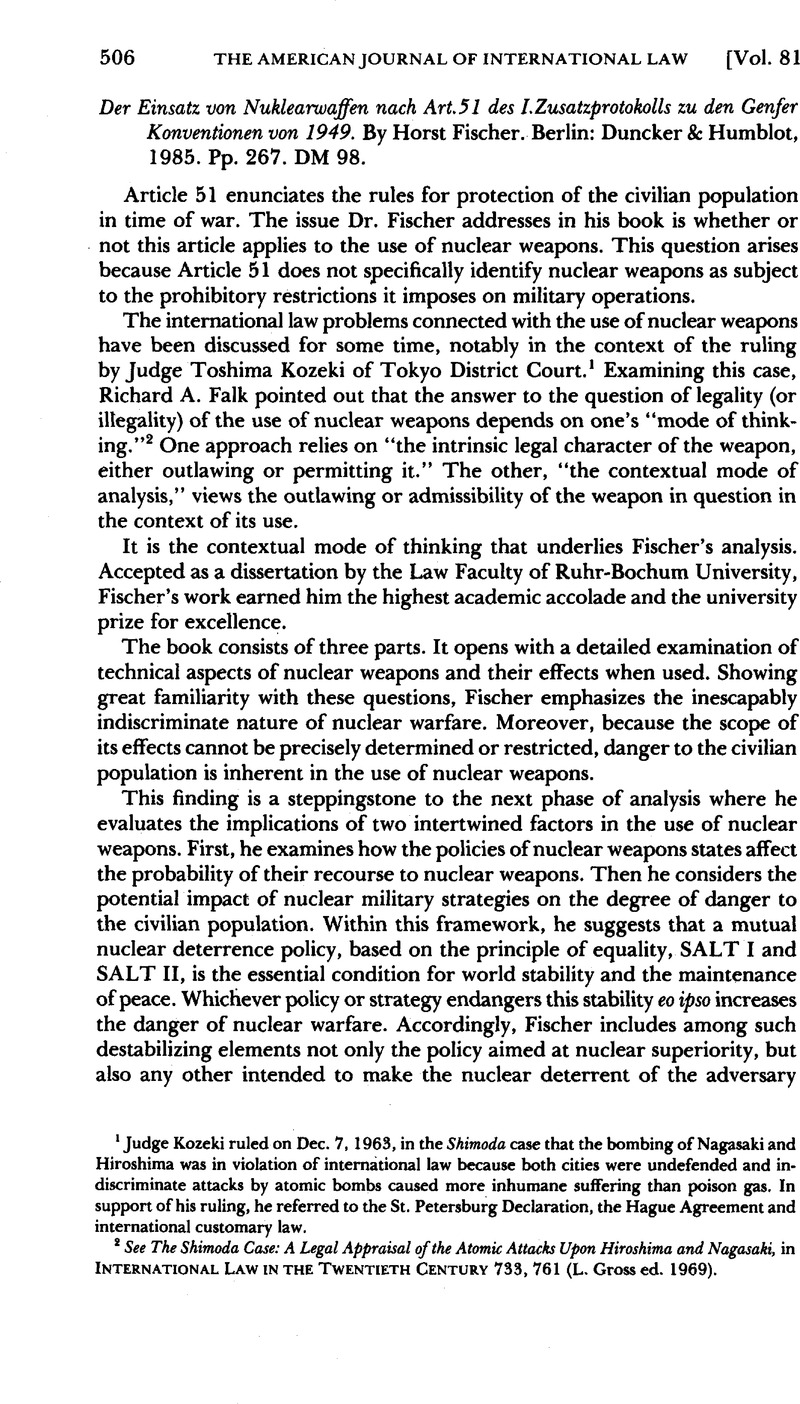No CrossRef data available.
Article contents
Der Einsatz von Nuklearwaffen nach Art.51 des I.Zusatzprotokolls zu den Genfer Konventionen von 1949. By Horst Fischer. Berlin: Duncker & Humblot, 1985. Pp. 267. DM 98.
Published online by Cambridge University Press: 27 February 2017
Abstract

- Type
- Book Reviews and Notes
- Information
- Copyright
- Copyright © American Society of International Law 1987
References
1 Judge Kozeki ruled on Dec. 7, 1963, in the Shimoda case that the bombing of Nagasaki and Hiroshima was in violation of international law because both cities were undefended and indiscriminate attacks by atomic bombs caused more inhumane suffering than poison gas. In support of his ruling, he referred to the St. Petersburg Declaration, the Hague Agreement and international customary law.
2 See The Shimoda Case: A Legal Appraisal of the Atomic Attacks Upon Hiroshima and Nagasaki, in International Law in the Twentieth Century 733, 761 (Gross, L. ed. 1969)Google Scholar.
3 For a contrary view, see Weinberger, , U.S. Defense Strategy 64 Foreign Aff. 675 (1986)CrossRefGoogle Scholar. The Secretary maintains that, inter alia, competitive strategies and further research on projects including the Strategic Defense Initiative are necessary to make the U.S. nuclear deterrent more credible and secure vis-à-vis the USSR.
4 The industrialized countries that had ratified Protocol I by the end of 1985 are Austria (1982), Denmark (1982), Finland (1980), Norway (1981), Sweden (1979) and Switzerland (1982). Yugoslavia ratified Protocol I in 1979, the Holy See in 1985. The only nuclear weapons state to ratify this Protocol, though with reservations, was the People’s Republic of China, in 1983.
5 This may be a moot issue as far as the United States is concerned. According to this writer’s information, the administration does not intend to present Protocol I for ratification, not even if all the other parties to Protocol I acquiesce in the U.S. reservation that the Protocol does not apply to nuclear weapons.
6 But cf. Weinberger, supra note 3, at 681: “We do not, in fact, plan our retaliatory options to maximize Soviet casualties or to attack deliberately the Soviet population. Indeed, we believe such a doctrine would be neither moral nor prudent.”




